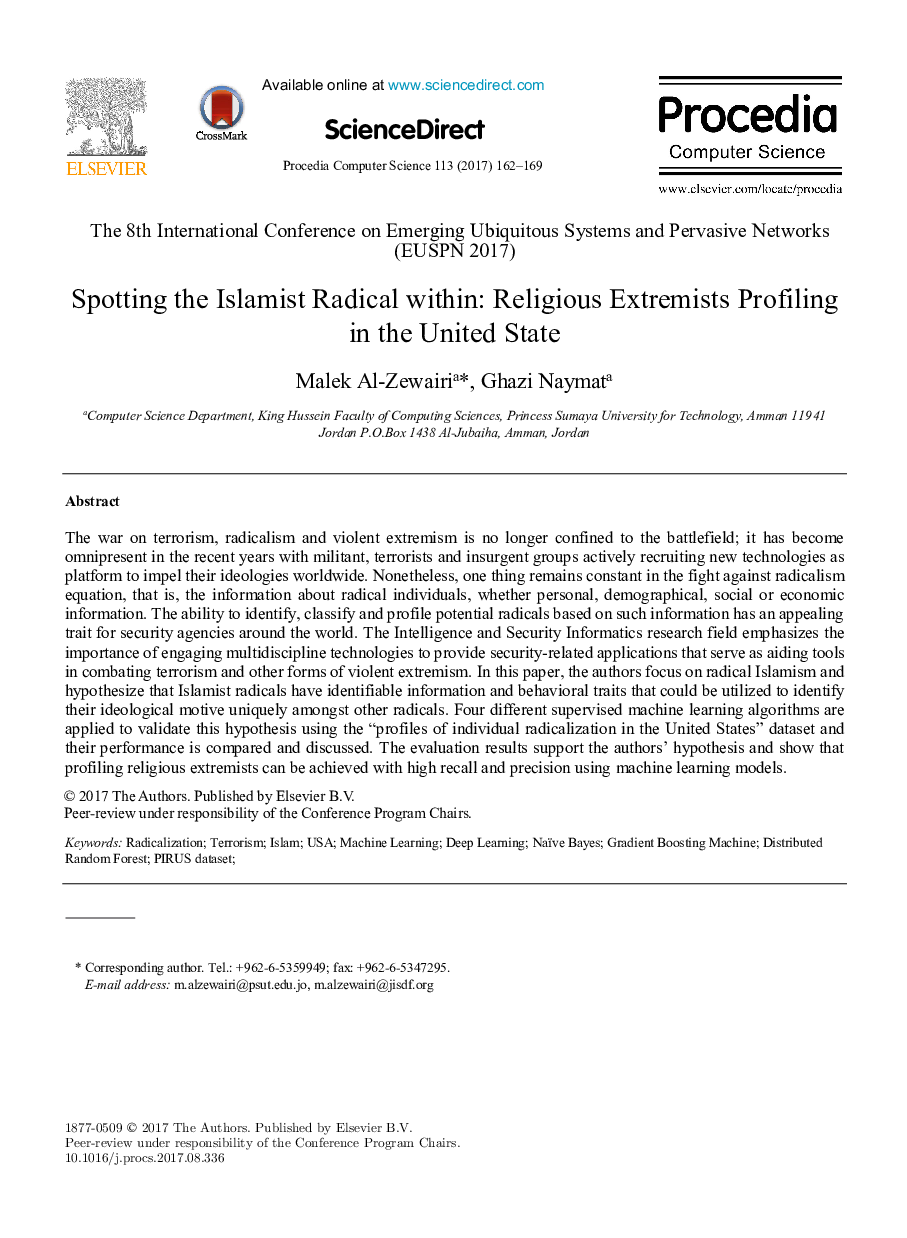| Article ID | Journal | Published Year | Pages | File Type |
|---|---|---|---|---|
| 4960706 | Procedia Computer Science | 2017 | 8 Pages |
Abstract
The war on terrorism, radicalism and violent extremism is no longer confined to the battlefield; it has become omnipresent in the recent years with militant, terrorists and insurgent groups actively recruiting new technologies as platform to impel their ideologies worldwide. Nonetheless, one thing remains constant in the fight against radicalism equation, that is, the information about radical individuals, whether personal, demographical, social or economic information. The ability to identify, classify and profile potential radicals based on such information has an appealing trait for security agencies around the world. The Intelligence and Security Informatics research field emphasizes the importance of engaging multidiscipline technologies to provide security-related applications that serve as aiding tools in combating terrorism and other forms of violent extremism. In this paper, the authors focus on radical Islamism and hypothesize that Islamist radicals have identifiable information and behavioral traits that could be utilized to identify their ideological motive uniquely amongst other radicals. Four different supervised machine learning algorithms are applied to validate this hypothesis using the “profiles of individual radicalization in the United States” dataset and their performance is compared and discussed. The evaluation results support the authors' hypothesis and show that profiling religious extremists can be achieved with high recall and precision using machine learning models.
Keywords
Related Topics
Physical Sciences and Engineering
Computer Science
Computer Science (General)
Authors
Malek Al-Zewairi, Ghazi Naymat,
